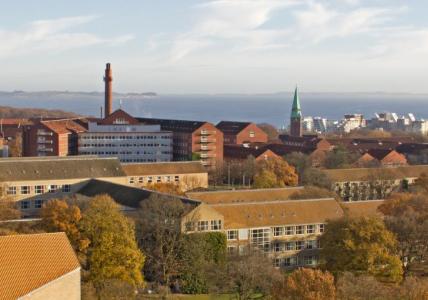Today, the Monitoring Committee of the Interreg North Sea Programme 2021-2027 approved the first 16 applications in Call 1.
The new programme is now on track to tackle pressing issues in the region. The approved applications address a variety of topics, from biomass and circular business to light pollution, climate resilience, and invasive species.
The meeting was hosted by Germany and took place in Hanover, the capital of Lower Saxony. One of the main points on the agenda was to take decisions on 21 applications received for small-scale projects and expressions of interest.

The Monitoring Committee and the Joint Secretariat in Hannover, Germany.
First small-scale projects approved
All three proposals received for small-scale projects were approved, hence the success rate of these applications is 100%. The projects are ready to launch as soon as the new programme is approved by the European Commission.
CIBIP, Circular Business Innovation Programme in the North Sea Region, is led by the Swedish organisation Drivhuset. CIBIP will test a transnational Circular Business Innovation Programme to help small and medium sized enterprises develop in a sustainable way. The project is approved in Priority 2.
Budget: ERDF €261,181 / Norwegian funding €26,250
Partners: 7 partners based in Sweden (lead), Belgium, Denmark, France, and Norway.
KID, Keep It Dark, is led by the Dutch Rijksuniversiteit Groningen. The project is developing a new joint monitoring system to tackle light pollution, which affects biodiversity as well as human health. The project is approved in Priority 3.
Budget: ERDF €277.499
Partners: 3 partners based in the Netherlands (lead), Denmark, and Germany.
BIOZE, Biomass Skills for Net Zero, is the first project in the programme's history with a French lead partner, Association d'Initiatives Locales pour l'Energie. It is also the first project approved in Priority 4 on governance, a novelty in our programme. BIOZE will improve biomass governance by empowering local authorities to better engage with citizens and stakeholders.
Budget: ERDF €288,580.
Partners: 6 partners located in France (lead), Germany, Sweden, and the Netherlands.
Warm congratulations to the very first projects approved in the new programme! We are all the more excited because they are also the first small-scale projects in the programme.
Go-ahead for 13 expressions of interest
The Monitoring Committee approved 13 expressions of interest from a total of 18 - a success rate of 72%.
The approved proposals are listed below. The partnerships may now develop their projects further in confidence, knowing their idea is found relevant. We wish them good luck in developing full applications for Call 2.
Note: No expressions of interest were approved in priority 1. We had only received two expressions of interest in Call 1 and unfortunately none of them received the green light this time.

PRIORITY 2: GREEN TRANSITIONS
ACCELaRATE Advance collaboration in community energy with local and regional authorities through exchange
BBoBB Building Based on BioBase
COPPER Cities for Open and Participative Planning for Electricity grid Resilience
Circular Trust Building Demand trust for circular building materials
GOVENER Governing ENERGY transition in neighbourhoods
LIHYP Linking hydrogen power potentials
MegaBITS Mobilizing Europe’s Green Ambition through Bicycles and Intelligent Transport Systems
RACER Rural Areas Circular Economy Reinforcer
WaterWarmth Accelerating the transition towards sustainable heating based on collective surface water heat pump systems

PRIORITY 3: Climate resilience, biodiversity and pollution
Clancy Improve habitat quality and climate-adaptivity of freshwater ecosystems through management of alien invasive aquatic invertebrates.
DivGrass Innovative biodiversity for climate resilient dairy grasslands in the North Sea Region
TREASURE Targeting the reduction of plastic outflow into the North Sea
PRIORITY 4: Better governance
NS H2 Valley Ports North Sea Hydrogen Valley Ports
Next step in Call 1
On 20-21 September, the Monitoring Committee will take decisions on the 24 full applications received in Call 1.



